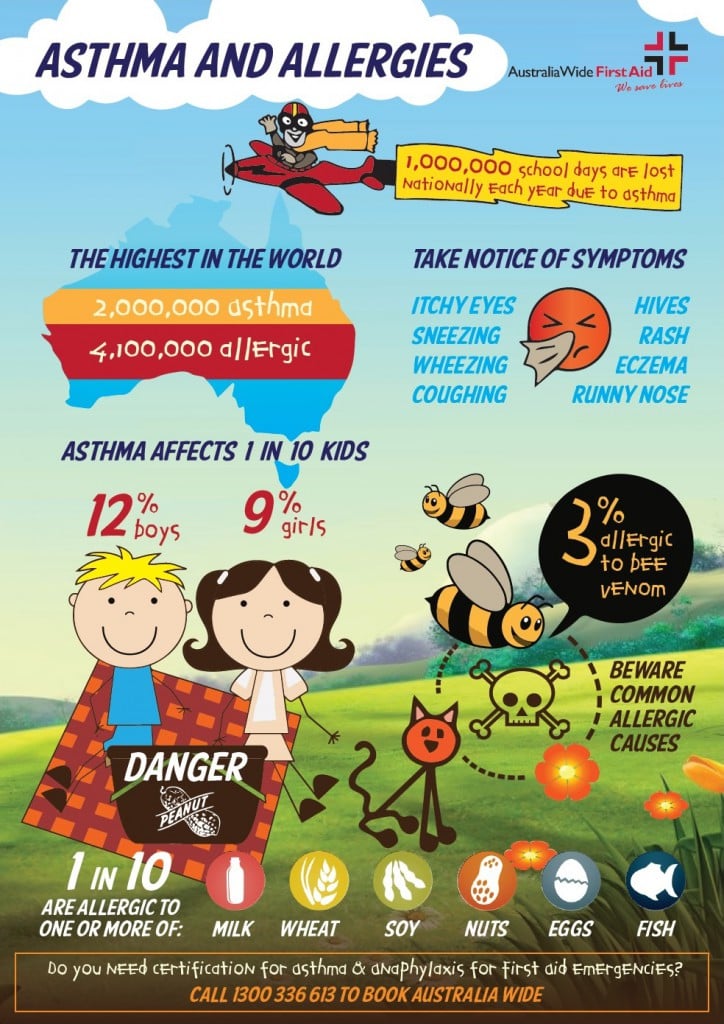Having a child with asthma can be difficult for a parent to cope with. Triggers can set off an attack almost anywhere.
One place that a child should not have to endure the attacks of asthma is in their own home. A home is an environment where people should feel safe, parents and children alike.
Parents who inform themselves on the triggers of asthma may be able to minimise or eliminate exposure of asthma-triggered attacks in their home.
Here are my top tips to asthma-proof your home:
Improve air quality
Improving the quality of air can help advocate for an asthma-free environment. Many irritants pollute the air such as cigarette smoke, perfume sprays, scented candles, wood smoke, gas appliances, cleaning products, and aerosol sprays. Asking others to smoke outside, avoiding perfume and other scented products, making sure gas appliances have proper ventilation, turning on the air conditioner on days with high pollen warnings, and cleaning air ducts and changing filters regularly are all ways to help improve the quality of air within a house.
Dealing with dust mites
Learning to deal with dust mites, a common asthma trigger, may be of help in minimising the exposure to children with asthma. Dust mites are microscopic bugs that live in dust and can be found in bedding, mattresses, and carpet. They feed off of shed human skin cells. This is what makes keeping a home vacuumed and dusted very important. Children’s bedding should be washed every few weeks. Also avoiding humidifiers may lessen the survival rate of dust mites as they are not accustomed to dry conditions.
Minimise mould
Minimising the growth of mould may be of help in asthma exposure conditions. Mould is a plant-like organism that can have harmful affects on the human body. Spores that are sent into the air are a result of mould reproduction. Inhaling these spores can trigger an asthma attack.
There are different ways that mould may be minimised including: reducing moisture by fixing broken or leaky pipes, taking down wallpaper, installing an exhaust fan in the bathroom for reducing moisture from showers, using anti-mildew paint in damp areas, and removing ceiling tiles with visible mold on them.
Be aware of pets
Animals are also one of the most common triggers of asthma as around 30% of people have an animal-related allergy. Allergens are usually found in their urine, dander, or saliva. The easiest thing would be to find another home for an animal, but that is not always the choice that parents and children would want to make.
There are other ways to accommodate living with both asthma and a pet. Making the pet an outdoors pet would be a better option for a child with an allergy to animals. If that is not accommodating, at least keep the animal out of the child’s bedroom or playroom.
Eliminating triggers of asthma within a house can be a lot of work, especially when most of the triggers are microscopic. Even after a parent does the best they can to make their house safe for their children, it does not always mean that they have totally eliminated the dangers. After all, a house cannot be wrapped in a protective bubble. However, minimizing or eliminating triggers may help reduce the amount of flare-ups in children.
As a parent, it is always best to take a first aid course in case of an allergic emergency.






















10:02 pm
8:28 am
6:58 pm
9:47 am
1:26 pm
5:04 pm
5:54 pm
9:51 pm
10:41 pm
9:38 pm
1:13 pm
9:57 am
6:31 pm
11:37 am
2:48 pm
10:56 pm
9:36 pm
9:10 pm
7:01 pm
4:57 pm
- 1
- 2
- »
Post a commentTo post a review/comment please join us or login so we can allocate your points.